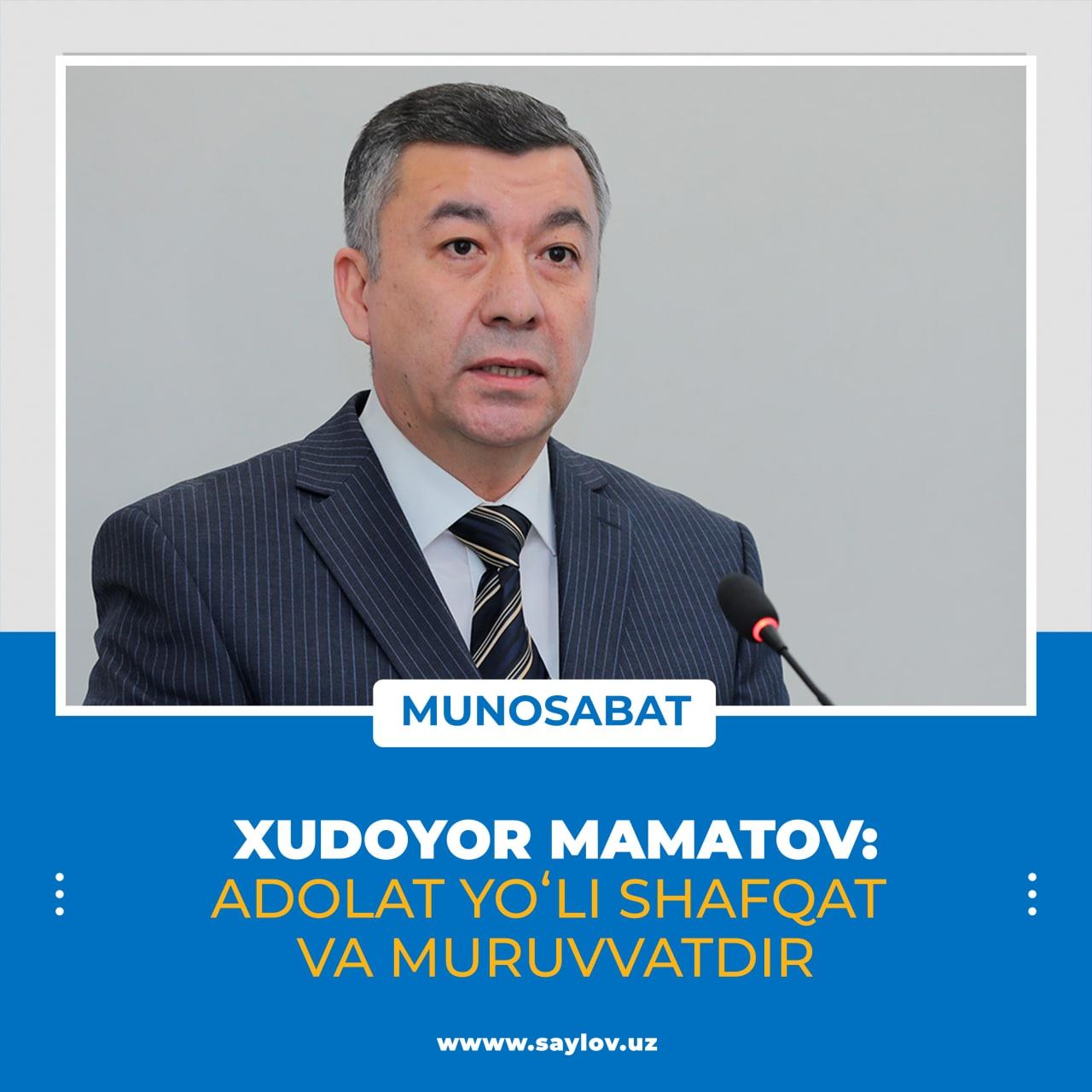- CEC
- Legislation
- Election commissions
- Elections and referendums
- International cooperation
- Press service


Khudoyor Mamatov,
doctor of legal sciences, professor
On June 20, during the meeting with the members of the Constitutional Commission, the President was extremely pleased with the issue put forward by the Head of State. When it comes to the abolition of the death penalty, it is undoubtedly supported by the entire people of Uzbekistan. It is not for nothing that the head of our state specifically addressed this issue. The introduction of a separate constitutional norm that the death penalty is completely prohibited in Uzbekistan into our basic law is the biggest step in this direction. True, the issue of abolishing the death penalty has been resolved. Its inclusion in our main dictionary strengthens this even more.
Let me express some of my thoughts about the importance of this situation. We can learn that the ideas of humanity have been glorified as a great value in our people since the beginning of time from the following passage from the epic "Saddi Iskandarii" by our grandfather Alisher Navoi: "...punishment of evil is correct in terms of law and politics, but the true path of a just ruler is mercy. No matter how much a person deserves to die, it is better to postpone his death, not to hurry about it...".
The abolition of the death penalty in our country means that the priority of universal principles and international standards have been implemented in Uzbekistan. In particular, as stated in Article 13 of our Constitution, democracy in the Republic of Uzbekistan is based on universal principles, according to which a person's life, freedom, honor, dignity and other inviolable rights are the highest value. In addition, Article 3 of the Universal Declaration of Human Rights, the first international document to which Uzbekistan joined, states that "Everyone has the right to life, liberty and security of person."
Therefore, the purpose of punishing a person who has committed a crime is not physical suffering or humiliating human dignity, but it is reflected in the Criminal Code of our country.
Let's read the reference from the famous French writer Victor Hugo's speech about the death penalty in the parliament session and think about the situation: "The death penalty is an eternal symbol of barbarism, where the death penalty is used, there is barbarity, and where the death penalty is practiced, it is rarely in rare cases there will be development."
Now let's turn your attention to the situation in the world: according to the Philippine government, from July 1, 2016 to November 30, 2018, 5,050 people were executed in anti-drug operations. According to Human Rights Watch, this number is at least 12,000. But the analysis shows that even though the maximum penalty has been imposed for crimes related to drug trafficking for ten years, the death penalty has not completely frightened drug traffickers. An analyst from the research group Harm Reduction International said that "most of those executed for this crime are ordinary drug carriers. Carriers in the drug trade are easily interchangeable.
That is, the reintroduction of the death penalty in the Philippines did not help to reduce crimes related to drug trafficking, on the contrary, the number of crimes increased and the number of people executed increased. This situation was also observed in Malaysia, Vietnam and Iran. In these countries, dozens of executions are carried out every year, but the number of people addicted to drugs is significantly higher than in countries that have abolished the death penalty for drug trafficking.
Corruption has not decreased in countries with the death penalty, on the contrary, it can be seen that countries without the death penalty have achieved positive indicators in the fight against corruption. For example, Finland and Denmark do not have the death penalty, but corruption rates are very low.
The abolition of the death penalty in our country is an expression of the fulfillment of the principles of humanity and tolerance, the universally recognized principles of international law. Also, the death penalty is a concept alien to the virtue of forgiveness inherent in our people. Rather, if we are confused about the issues of education, upbringing of our children, raising the legal awareness of our youth, which are matters of life and death for our society, we will prevent the development of people who cause such bad feelings to arise in our society. The fact that this fact has become one of the central issues of the humane and just policy implemented in the new Uzbekistan further strengthens our confidence in our future.
Source: "New Uzbekistan" newspaper, June 23, 2022. Issue 124 (646)